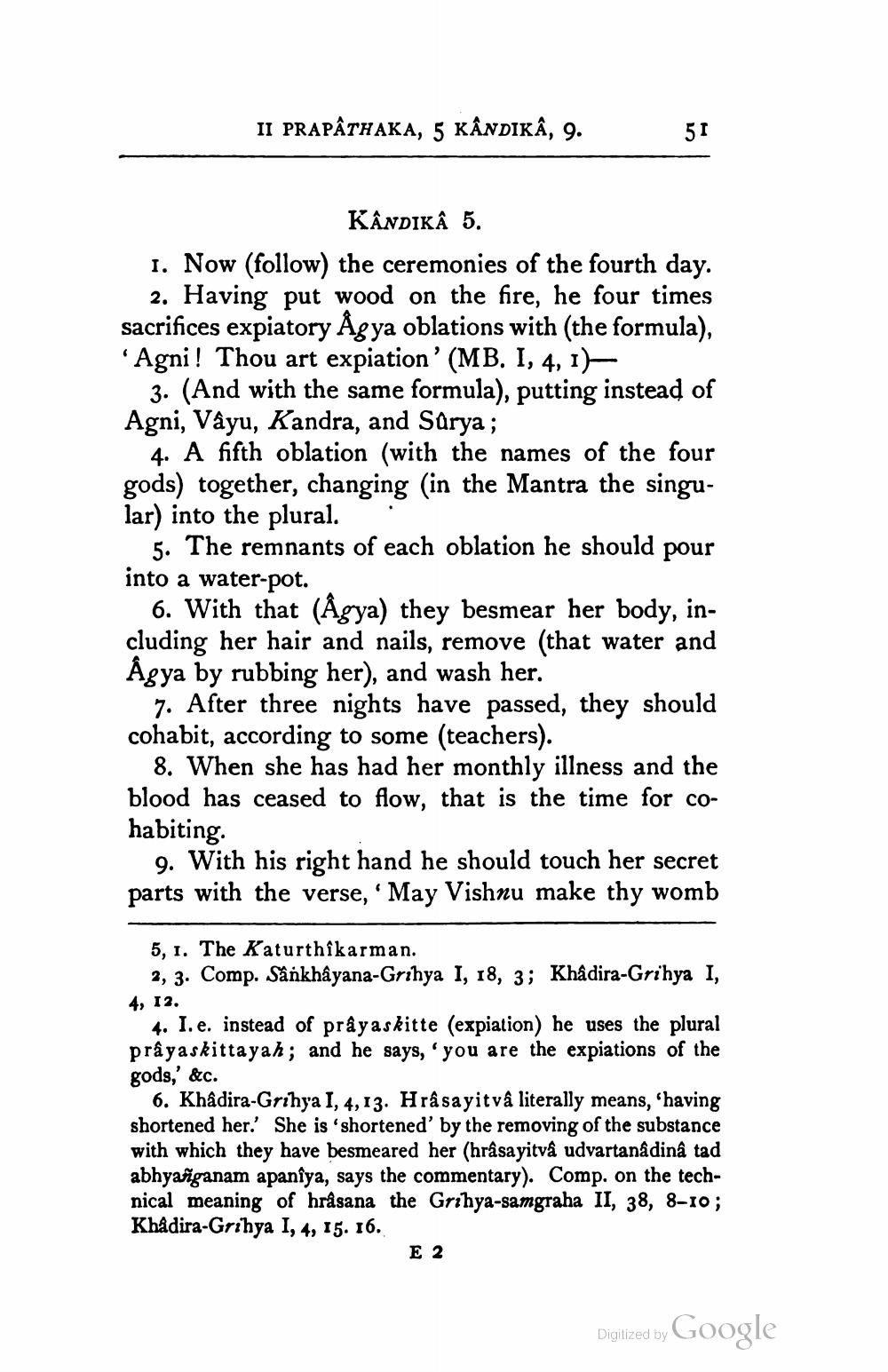________________
II PRAPATHAKA, 5 KÂNDIKÂ, 9.
51
KANDIKA 5.
1. Now (follow) the ceremonies of the fourth day.
2. Having put wood on the fire, he four times sacrifices expiatory Ågya oblations with (the formula), * Agni! Thou art expiation' (MB. I, 4, 1)
3. (And with the same formula), putting instead of Agni, Vâyu, Kandra, and Sarya ;
4. A fifth oblation (with the names of the four gods) together, changing in the Mantra the singular) into the plural.
5. The remnants of each oblation he should pour into a water-pot.
6. With that (Ågya) they besmear her body, including her hair and nails, remove (that water and Agya by rubbing her), and wash her.
7. After three nights have passed, they should cohabit, according to some (teachers).
8. When she has had her monthly illness and the blood has ceased to flow, that is the time for cohabiting.
9. With his right hand he should touch her secret parts with the verse, ' May Vishnu make thy womb
5, 1. The Katurthîkarman. 2, 3. Comp. Sankhayana-Grihya I, 18, 3; Khảdira-Grihya I,
4, 12.
4. I.e. instead of prayaskitte (expiation) he uses the plural praya skitta yah; and he says, you are the expiations of the gods,' &c.
6. Khâdira-Grihya I, 4, 13. Hrásayitva literally means,'having shortened her.' She is shortened' by the removing of the substance with which they have besmeared her (hrasa yitvå udvartana dina tad abhyañganam apaniya, says the commentary). Comp. on the technical meaning of hrâsana the Grihya-samgraha II, 38, 8-10; Khadira-Grihya I, 4, 15. 16.
Digilized by Google




